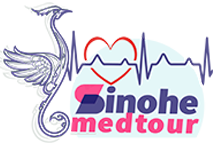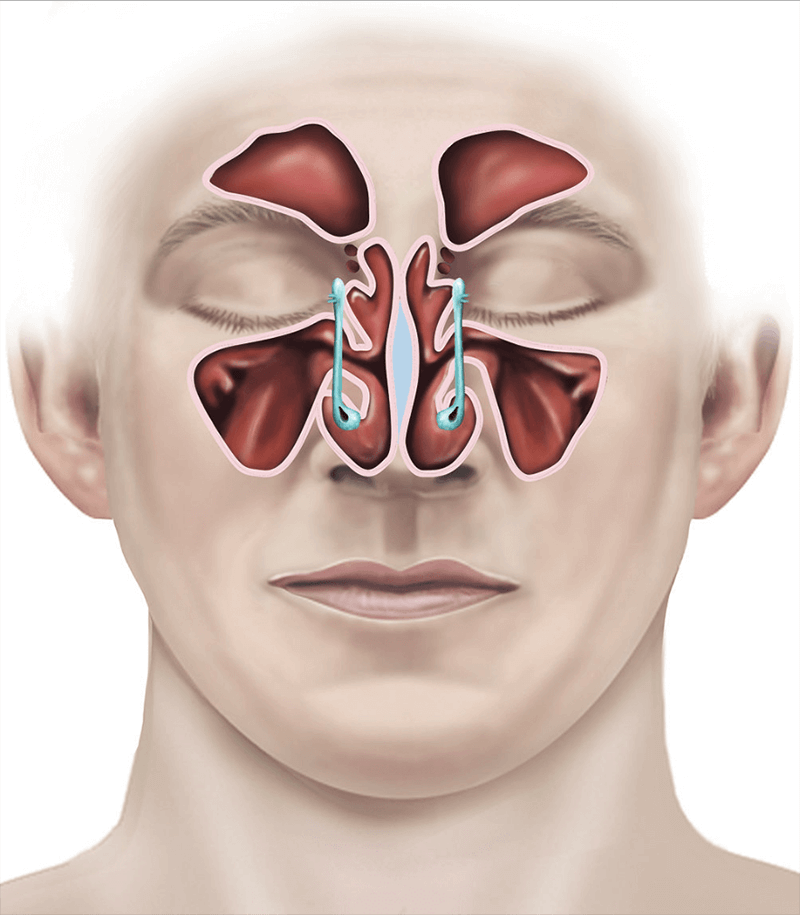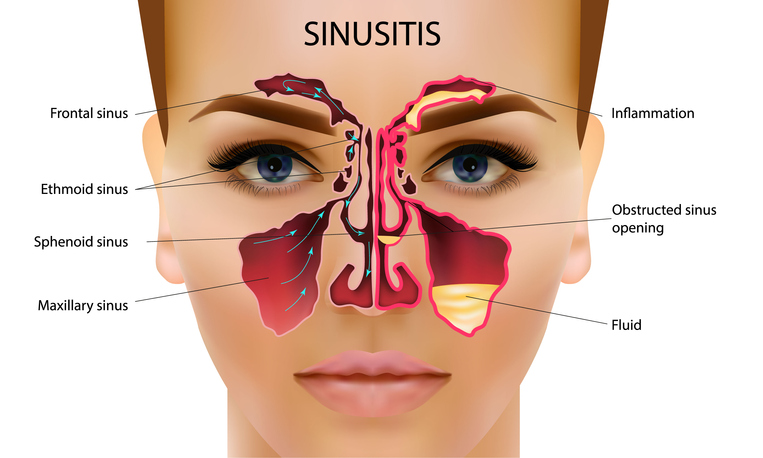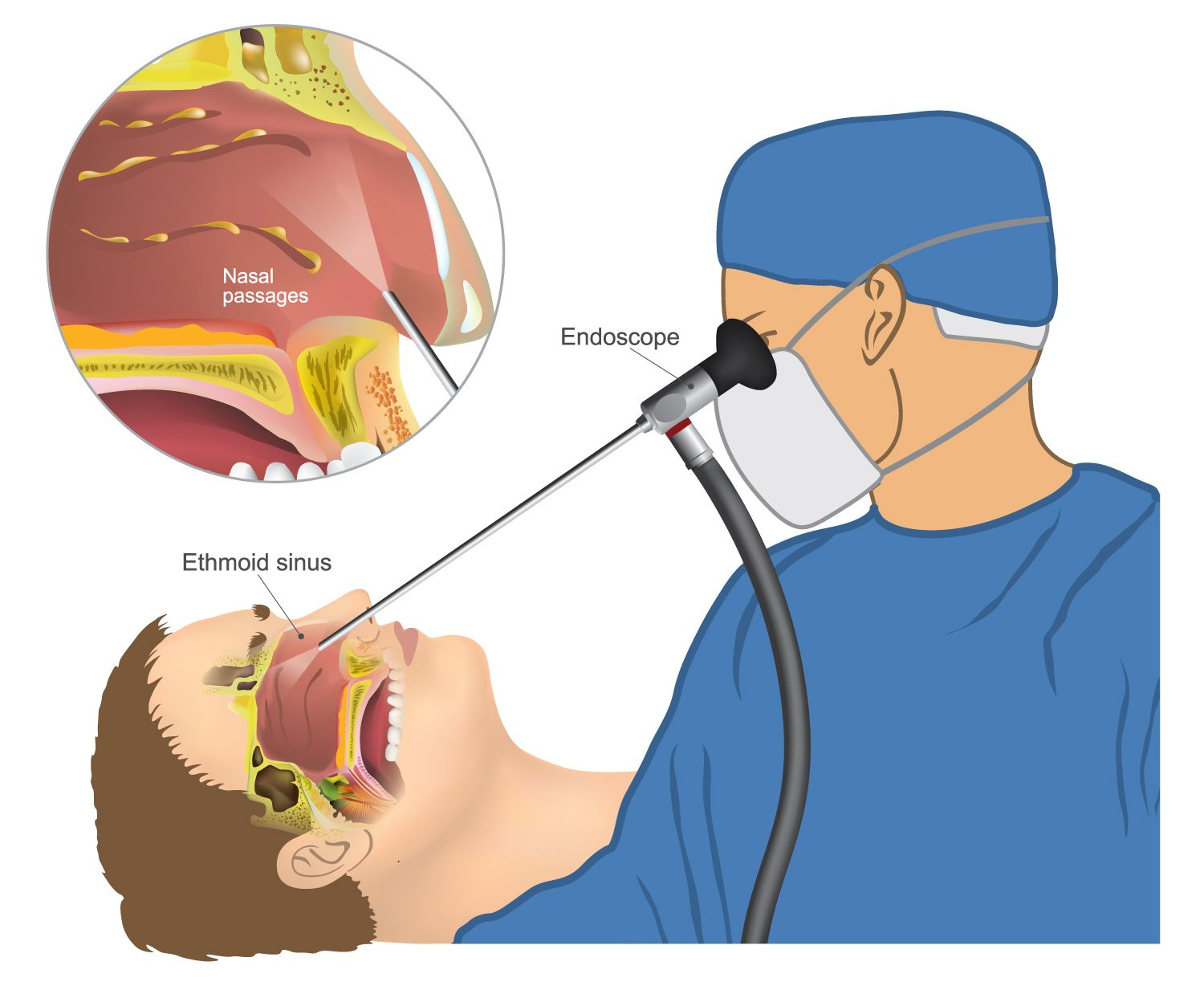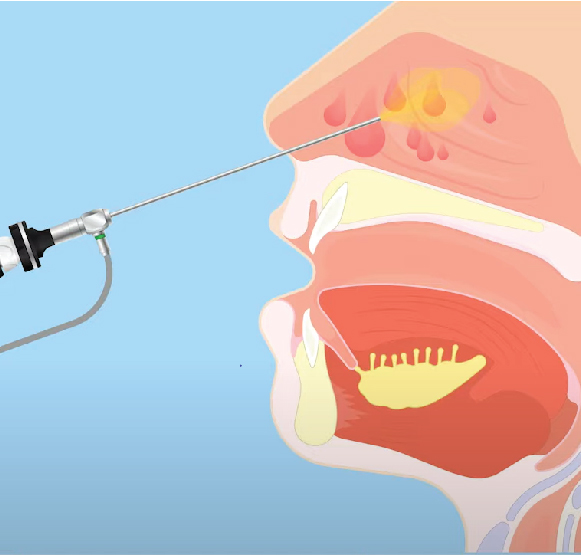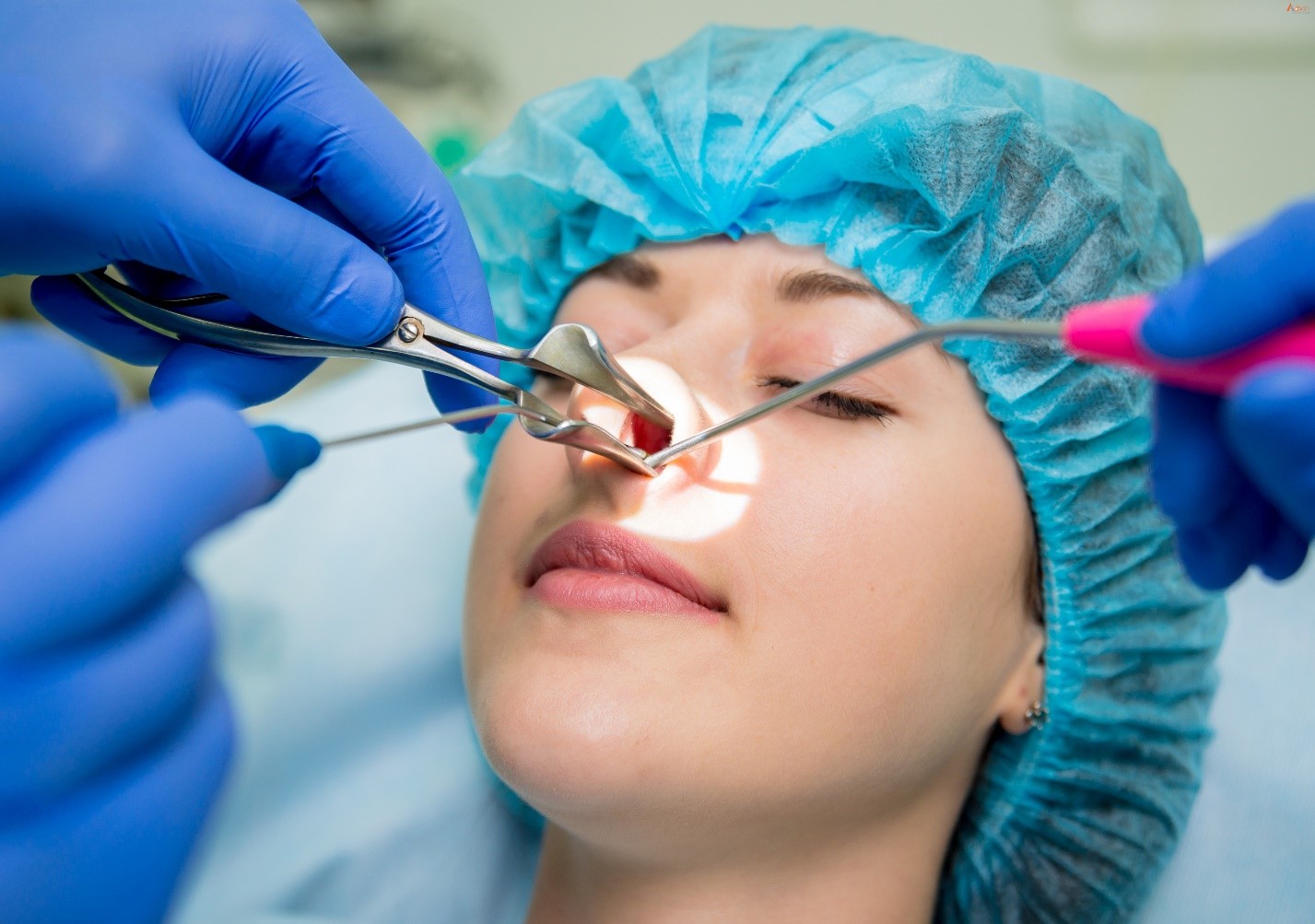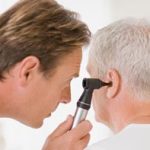SINUS SURGERY
What are sinus surgery types?
There are several types of sinus surgeries:
- Functional endoscopic sinus surgery (FESS): This is the most common type of sinus surgery. This surgery widens the drainage passages between your nose and your sinuses, removing bone or infected tissue so mucus trapped in your sinuses can get out. Healthcare providers use endoscopes to see inside of your nose and sinuses and guide the surgery. Endoscopes are thin tubes with lights on the end. Healthcare providers may use an image-guided system to do FESS. In image-guided surgery, healthcare providers use computed tomography (CT) scans to “see” the inside of your sinuses.
- Balloon sinuplasty: Balloon sinuplasty is a minimally invasive treatment for sinusitis. Healthcare providers use an endoscope and catheter to guide a small balloon into your nose. They inflate the balloon to increase the passageway to your sinuses.
- Caldwell Luc surgery: Healthcare providers may do this surgery when approaches that are more traditional haven’t resolved your sinus issues. In this surgery, providers make a new opening from your maxillary sinus — the sinus cavity behind your cheek — to your nose so mucus can drain from your sinus cavities.
What’s the difference between sinus surgery and turbinate reduction?
In sinus surgery, a healthcare provider opens blocked sinus passages. Turbinate reduction is surgery to reduce the size of your turbinates. These are small bony structures inside of your nose.
Is sinus surgery serious surgery?
In general, sinus surgeries aren’t serious surgeries with significant complications.
Is sinus surgery very painful?
Healthcare providers use general or local anesthesia when they do sinus surgery. General anesthesia means you’re unconscious and don’t feel any pain. People who have local anesthesia may feel pressure during surgery but typically don’t feel any pain. They may have mild to moderate pain for about a week after surgery.
Procedure Details
What happens before this procedure?
Your healthcare provider will do a pre-operation screening to be sure you’re able to have the surgery. They may prescribe medications that prevent infection or swelling. Every person’s situation is different, but most healthcare providers recommend the following:
- If you smoke, please try to stop smoking at least three weeks before your surgery. Smoking can make your sinus symptoms worse. Ask your healthcare provider for advice or resources to help with this.
- Don’t take aspirin for at least seven days before your surgery. Even small amounts of aspirin can increase how much you bleed during and after your surgery.
- If your surgery involves general anesthesia, don’t eat or drink anything after midnight the day of your surgery.
- You won’t be able to drive for 24 hours after your surgery, so plan to have someone available to help you get home.
- Your healthcare provider will administer general anesthesia just before your surgery begins.
What happens during these surgeries?
Healthcare providers do functional endoscopic sinus surgery and balloon sinuplasty by inserting surgical tools into your nose. Caldwell Luc surgery involves going through your mouth to reach a sinus cavity and open a passage between that sinus and your nose.
Functional endoscopic sinus surgery
FESS is the standard procedure to treat serious sinus conditions. Here’s an overview of the process:
- Your healthcare provider puts decongestant medication in your nose.
- They do a follow-up nasal endoscopy.
- They inject a numbing solution into your nose.
- Using the endoscope, they gently enter your nose. They insert surgical tools alongside the endoscope to use the endoscope to remove bone, diseased tissue or polyps that may be blocking your sinuses.
- They may also use a small rotating burr to scrape out tissue.
- Finally, your healthcare provider may pack your nose with material to absorb any blood or discharge.
Balloon sinuplasty
This is an alternative to FESS. Here’s information about this process:
- Your healthcare provider will inject local anesthetic into the tissue lining your nose.
- They’ll insert a catheter into your nose, using an endoscope to guide the catheter.
- Then, they’ll use the catheter to place a small balloon in your sinuses.
- They’ll slowly inflate the balloon to unblock your sinuses.
- They’ll remove the balloon.
Caldwell Luc surgery
Healthcare providers typically do this surgery when other procedures haven’t solved your sinus issues. In this surgery, providers open your maxillary sinus, which is located behind your cheek, and create a new path from your sinus to your nose. They typically remove any damaged tissue or bone as part of the surgery. Here’s more information about this surgery:
- You’ll receive general anesthesia.
- Your healthcare provider makes an incision in your gum between your upper lip and gum tissue to get to the wall of your maxillary sinus.
- They make a small hole in your sinus wall so they can remove any damaged or diseased bone or tissue.
- They use an endoscope to increase the size of your maxillary sinus opening.
- They use sutures (stitches) to close the gum incision.
What happens after sinus surgery?
If you received general anesthesia, you’ll rest in a recovery room while your anesthesia wears off. If you had local anesthesia, you’ll be able to go home right away. Before you leave, your provider will give you information about taking care of yourself as you recover. Your provider may prescribe pain medication to help with the mild or moderate pain you may have for a week or so after your surgery. They may also prescribe antibiotics to help prevent infection.
Risks / Benefits
What are sinus surgery risks or complications?
Any surgery has potential complications, but sinus surgery complications are rare. Ask your healthcare provider to explain what kinds of complications you may have and what they’ll do to help you if you do have complications from sinus surgery. Complications may include:
- Unusually heavy bleeding: While there’s little risk of heavy bleeding with sinus surgery, you may bleed more than usual. If that happens, your healthcare provider may place packing in your nose and recommend you stay in the hospital so healthcare providers can monitor your situation.
- Tearing eyes: Surgery or sinus inflammation may make your eyes tear up.
- Leaking cerebral spinal fluid (CSF): This rare complication affects the fluid that surrounds your brain. You could develop meningitis or inflammation of your brain if this fluid leaks.
- Problems seeing: Sometimes, people lose vision in one eye or see double after sinus surgery.
- Numbness: Sometimes, Caldwell Luc surgery may cause minor nerve damage so people feel like part of their face is numb.
- Empty nose syndrome: Some people report their nose feeling stuffy or clogged, or being unable to inhale a complete breath despite their nasal passages being clear.
Is sinus surgery worth it?
Persistent sinus pain and stuffiness aren’t life-threatening medical conditions but they can affect your quality of life. Minimally invasive sinus surgery such as FESS and balloon sinuplasty often cures sinus issues. Talk to a healthcare provider if you’re weighing the risk and benefits of sinus surgery. They’ll review your medical history, your current sinus situation and your medical history before making a recommendation.
Recovery and Outlook
How long does it take to recover from sinus surgery?
Most people recover from sinus surgery within a few days. Here are some steps to take to help your recovery:
- You’ll have gauze under your nose to catch drainage that you’ll need to replace as the gauze becomes wet.
- You should sleep with your head elevated.
- Try to drink plenty of fluids.
- Your nose may feel crusty or stuffy.
- You may have mild to moderate pain for about a week after your surgery.
What is the outlook for sinus surgery?
Sometimes, people’s sinus problems go away right after surgery. Other people may need a few weeks or months before their symptoms go away.
Why Iran?
Iran has earned the title of ‘rhinoplasty capital of the world’ since 2005. Performing over 200,000 nose job procedures every year, Iranian ENT specialists are definitely worth their salt when it comes to otolaryngology diseases. Additionally, they use advanced techniques to provide satisfactory results for every patient according. Not to mention that you can have sinus surgery in Iran at a very reasonable rate.
- Avoid strenuous activities that could increase your blood pressure for at least a week after the surgery.
- For a couple of days, slightly elevate your head and neck while sleeping to encourage drainage.
- Avoid blowing your nose for 10 days after the surgery.
- Refrain from blood thinners such as aspirin and anti-inflammatory medications for 2 weeks after the surgery.
Risks and Complications
Similar to any surgery, there are some risks associated with sinuplasty. Although rare, it is still possible to experience the following complications after surgery:
- Excessive bleeding
- Vision problems
- Olfactory dysfunction (decreased sense of smell)
- Severe headache
If you have any questions regarding the procedure and SinouheMedTour services, contact us by filling out the form below. Our healthcare team will get back to you as soon as possible.
